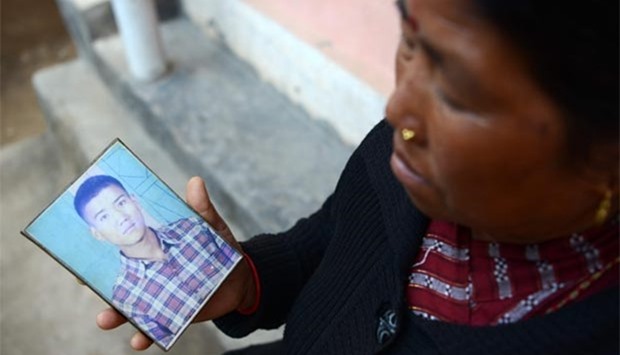Nepal on Thursday extended the mandates for two commissions tasked with probing crimes committed during the bloody civil war, hours before a deadline was due to lapse without a single case being investigated.
The commissions had been given two years to look into the murders, rapes and forced disappearances perpetrated by government forces and Maoist rebels during the decade-long conflict, which ended in 2006.
Their mandates were to expire at midnight Thursday, leaving thousands of victims in limbo, but in an eleventh-hour decision Kathmandu agreed to extend the investigation period.
"The term of the two commissions have been extended by a year," Information Minister Surendra Kumar Karki told AFP following a cabinet meeting.
Critics fear the extension is insufficient to hear the tens of thousands of complaints filed by victims seeking justice and answers about the fate of their loved ones.
"We don't think a year is enough to investigate the 58,000 petitions we received," Surya Gurung, the head of the commission into war-time abuses, told AFP in a recent interview.
Not a single case was investigated during the two-year mandate, with critics blaming a lack of funds and political inertia.
The government was criticised for not granting the commissions the legal powers afforded under international law to prosecute war crimes, or repealing a provision granting amnesty to perpetrators.
A narrow legal window for reporting rape in Nepal also effectively bars the prosecution of sexual crimes perpetrated during the civil war.
Rights groups say these limitations protect war-era figures still occupying positions in military and political ranks, and stifle investigations.
"An extension alone is not enough. Legal changes are needed for us to truly work and fulfil our objectives," said Lokendra Mallick, the chairman of the commission into war-time disappearances.
More than 17,000 people were killed, 1,300 disappeared and thousands displaced during the civil war, which ended with a peace deal between Maoist insurgents and government forces.
The pact also heralded the end of the Hindu monarchy, which fell two years later as the former rebels swept to victory in Nepal's first post-war national elections.

Nepalese war victim Pabitra Sunakhari shows a photograph of her son as she speaks in Birendranagar, some 520km west of Kathmandu.
